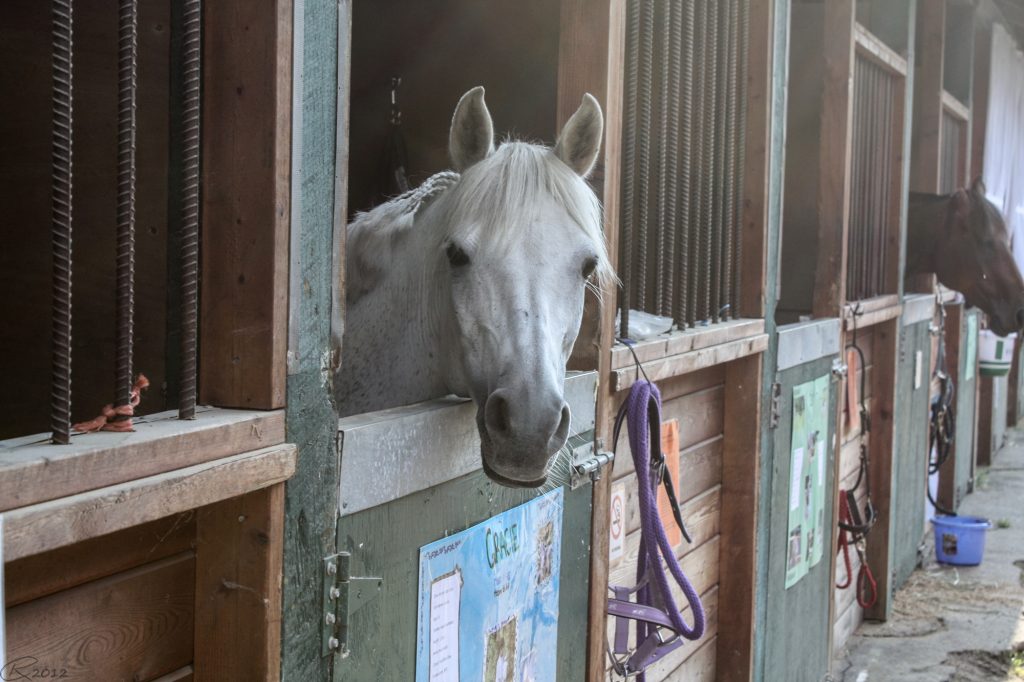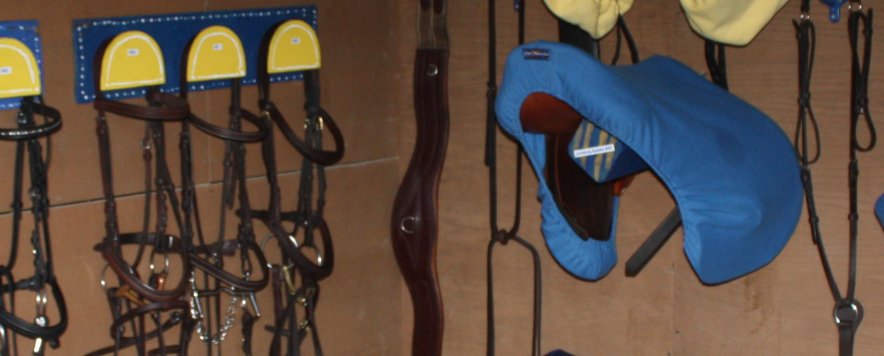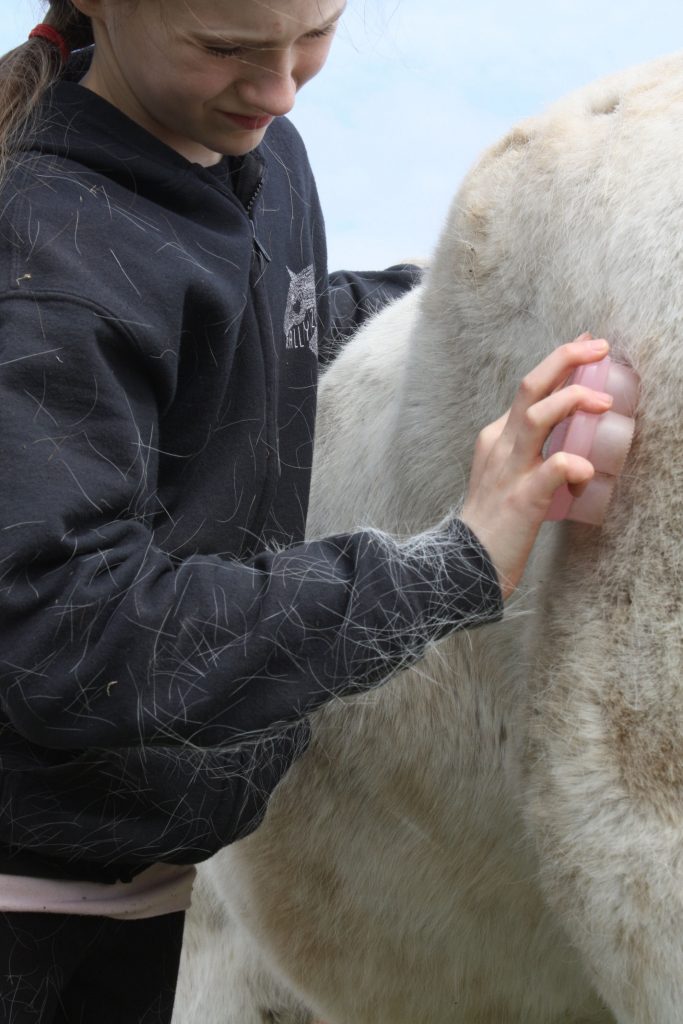The final item on Horsemanship 1 checklist is: 11. Demonstrate safety and common sense when working around horses This is something our examiners make note of during the whole of the horsemanship assessment. We want to see that you are calm, confident, and sensible while handling your horse. Most candidates are very good at staying…
Tag: Horsemanship

A Stable Situation: needs and habits of the horse
Aside from food, which was covered in last week's post, a horse needs shelter and security. These topics were both covered in previous posts (see links). For the Horsemanship 1 test we ask about 10. Stabling: needs and habits of the horse Along with reference to food, secure fencing, and shelter, we want to see…
Read More... from A Stable Situation: needs and habits of the horse

What's on the Menu?
There's a lot of news and fun stuff this week, so lets get the lesson over with right away, shall we? Basic Feeding First of all, go and re-read this post from January, which covers basic feeding. There is an entire science to equine nutrition, but for Horsemanship level 1 test we ask specifically about:…
Taking it off
Congratulations & Thanks! Before getting to our weekly topic I’d like to thank everyone who lent a hand at the work party on Sunday. We got an great start on Jack-proofing our fences, replaced several posts, built and installed two gates, and hauled those logs out to the back field to start building new cross…

Another Tacky Post
Now that we know the names of all those pieces of leather and metal that make up a horse's tack, we need to know how to put them on correctly. 7. Tack up (may be assisted) 'May be assisted' means that for Horsemanship level 1 you should know the correct method of tacking up. If…
On the Right Tack
As with points of the horse, the nomenclature of the saddle and bridle varies from the obscure to the obvious. Item #6 on the Horsemanship 1 test is: Identify simple parts of saddle & bridle While it may seem a nuisance to memorize these terms, it is fairly important to know your billet strap from…

The Well-Groomed Horse
Grooming the horse is one of the most important skill sets a rider needs to have. It allows you to check your horse for injuries, helps increase the circulation to his skin and muscles, prevents chafing from dirt under the tack, improves his appearance, and provides valuable bonding time. As you progress through your Horsemanship…
The Quick Release Knot
The quick release knot is item #4 on your Horsemanship Level 1 checklist. There are several methods of tying a quick release knot, and your instructor will teach you the most simple method. For your assessment we don't mind which one you use as long as it tightens when the horse pulls back releases smoothly…
Follow the Leader: the horse in hand
First off a huge 'thank-you' to everyone who came out to the emergency work party on Sunday to dig ditches, attack brambles and fix fences (with extra special thanks to Kat & Tyrel who came out TWO days in a row, having spent Saturday with Andy clearing the ditch around the manure pile -- awesome!)…
A Horse in Hand is Worth Two in the Field: catching & haltering
The second item on the Horsemanship Level 1 checklist is: 2. Enter, approach and safely halter horse in stall or paddock There are a myriad of videos out there, but really, you can't do it much better than this little girl: (Just watch to about 1:35 -- it gets a bit chaotic when her sister…
Read More... from A Horse in Hand is Worth Two in the Field: catching & haltering
Off side! Navigating your way around a horse
This is the first in a series of posts that will look at the individual requirements in the Horsemanship stream of the Cavaliere Program, beginning with Level 1. Even if you already have your Horsemanship 1 it is worthwhile reviewing this material, as subsequent levels are all built upon this foundation. The first item on…
Read More... from Off side! Navigating your way around a horse
Safe is sound
Needs of the Horse part III: Security In the first part of this series I stated that horses need food, shelter, and security. At first glace creating a secure environment for a horse seems fairly straightforward. After all, there aren't that many large predators left in most places where we keep horses (though losing a…
Gimme Shelter!
Needs of the Horse part II: Shelter In respect to last week’s topic, food, and this week’s, shelter, humans and horses are opposite. Horses eat and drink an enormous quantity compared to us, and the consequences of going hungry or thirsty are potentially more serious (ulcers, colic, and other digestive upset) than they are for…
What do Horses Need?
Like all mammals, equines have three core needs: food, shelter, and security. In the grasslands of Eurasia, where the modern horse evolved, these needs were met quite differently than they are for most domesticated horses today. A wild horse lives in a herd, travels many miles each day, grazes constantly, and seeks shelter from whatever…